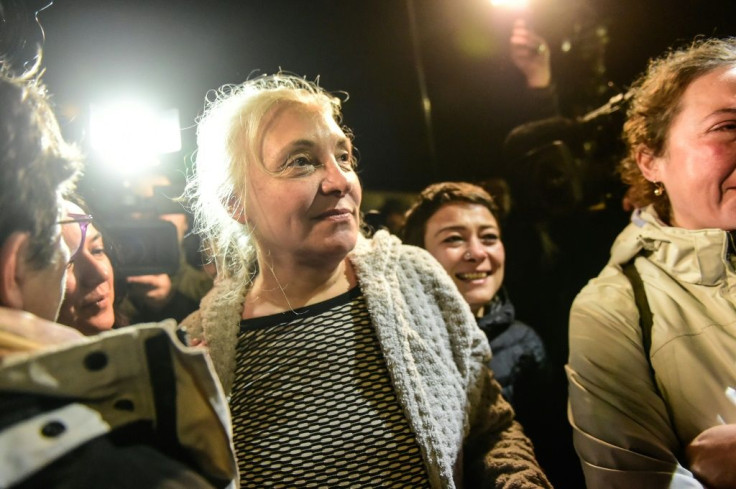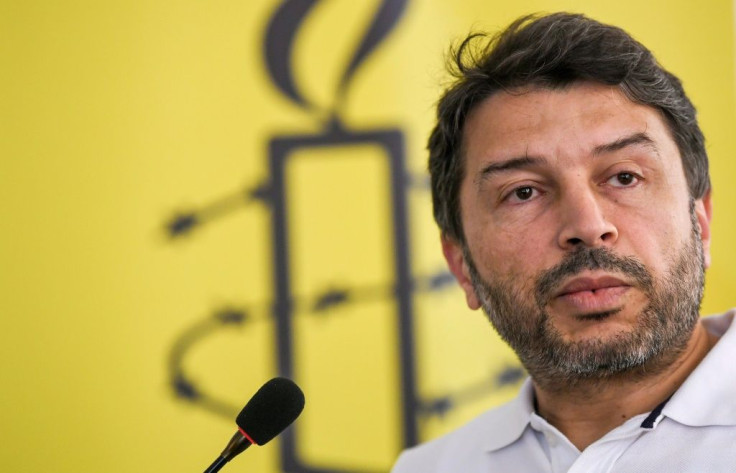Court Convicts Amnesty Turkey Ex-leaders On Terror Charges
Amnesty International Turkey said two of its former leaders were convicted on "terrorist" charges by an Istanbul court on Friday in a case reflecting mounting official pressure on civil society.
The trial of 11 human rights activists became a symbol of the crackdown on critics after the 2016 failed attempt to overthrow President Recep Tayyip Erdogan.
Idil Eser, former Amnesty Turkey director, was among three people sentenced to 25 months for "helping a terrorist organisation".
Ex-Amnesty International Turkey chair Taner Kilic was sentenced to six years and three months for "membership of a terrorist organisation", Amnesty Turkey said on Twitter.
They are free pending appeal.

The court acquitted seven other activists including Peter Steudtner, a German citizen, and Ali Gharavi, who is Swedish.
The trial had been followed closely abroad with Chinese artist Ai Weiwei, U2's Bono and others offering high-profile support.
"The decision of the court is staggering. During 12 court hearings, each and every allegation has been comprehensively exposed as a baseless slur," Amnesty's Andrew Gardner said in a statement, describing the verdict as a "travesty of justice".
"The court's verdict defies logic and exposes this three-year trial as the politically motivated attempt to silence independent voices it was from day one," he added.

The majority of the rights defenders on trial were arrested in 2017 after a workshop on digital security on an island off the coast of Istanbul.
Turkish authorities accused them of organising a "secret meeting", with the two foreigners' presence reinforcing officials' suspicions of a plot against Turkey.
The activists were accused of seeking to wreak "chaos in society" -- a similar charge to the one brought against protesters whose anti-government demonstrations in the summer of 2013 shook Turkey.
Kilic, now Amnesty's honorary chair, was released on bail in August 2018 after 14 months in jail.
He was accused of links to the movement led by US-based Muslim preacher Fethullah Gulen, which is outlawed in Turkey.
Ankara accuses Gulen of ordering the 2016 attempted overthrow of President Recep Tayyip Erdogan but he denies the claim.
It was claimed Kilic used the encrypted ByLock messaging application, which authorities believe was used to coordinate the coup bid.
But a police report showed Kilic did not have the application on his phone.
Following the attempted putsch, tens of thousands of people were arrested including journalists, accused of links to Gulen while over 100,000 public sector workers were sacked or suspended for similar allegations.
One of the cases which has garnered international attention is the one against leading businessman and rights defender Osman Kavala.
He was acquitted in February this year after a controversial trial over the anti-government "Gezi Park" protests of 2013, but was rearrested on a different charge.





















